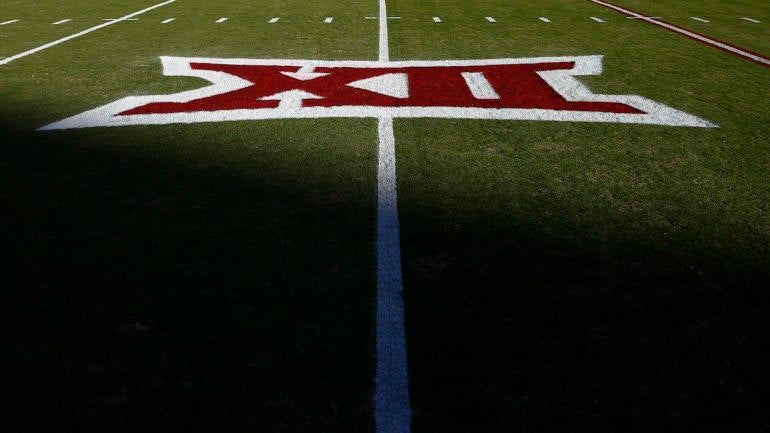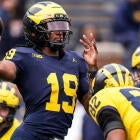
The Big 12 is concerned that the American Athletic Conference (AAC) is actively attempting to assume all eight remaining league members once Texas and Oklahoma are formally accepted into the SEC, league sources tell CBS Sports. This comes as Big 12 commissioner Bob Bowlsby told CBS Sports that ESPN is leading an attempt to restructure college sports.
"I'm absolutely certain [ESPN was] involved in it with the [American] trying to poach our members," Bowlsby told CBS Sports.
AAC commissioner Mike Aresco did not respond to multiple requests for comment.
ESPN provided the following statement Wednesday night in reference to Bowlsby's letter: "The claims in the letter have no merit." Burke Magnus, ESPN president of programming and original content, further responded to the letter on Thursday.
"The accusations you have made are entirely without merit," Magnus wrote. "Apart from a single vague allegation that ESPN has been 'actively engaged in discussions with at least one other' unnamed conference, which ESPN disputes, your letter consists entirely of unsubstantiated speculation and legal conclusions. To be clear, ESPN has engaged in no wrongful conduct and, thus, there is nothing to 'cease and desist. We trust this will put the matter to rest."
The Big 12 has clearly taken a fight-to-the-death stance as the two most powerful members of its league are mere steps from joining the nation's most powerful conference.
In fact, the Big 12's bylaws are written in such a way that -- if there is even one member remaining -- a program can individually sue any of the entities in this discussion -- the SEC, the AAC or even ESPN.
Leaning on the "disinterested directors" clause in its bylaws, the Big 12 intends to make the migration of Texas and Oklahoma to the SEC as difficult as possible.
After losing four teams in the last round of conference realignment a decade ago, those bylaws were drafted in 2012 to stand for a period of 99 years. Texas and Oklahoma were part of the group who, according to one source, wanted the longest agreement possible.
That last round of realignment led to the Big 12 registering itself as a corporation in the state of Delaware. That helps prevent the case from being heard in Texas where the University of Texas might have a legal advantage.
"Oklahoma and Texas are going to do everything they can to get out of the grant of rights and get out of the bylaw stipulations. It's going to be a long process," Bowlsby told CBS Sports.
Bowlsby recently told the eight remaining Big 12 schools that his strategy is to fight for survival as long as they stay together.
As long the Big 12 remains viable, ESPN and Fox cannot reduce the conference's rights fees under the current contract.
Big 12 schools each make approximately $37 million annually. Industry sources told CBS Sports that the Big 12's worth declined 50% to 75% with the defections of the Longhorns and Sooners.
"The eight remaining schools are dealing with a lot," Bowlsby told CBS Sports. "They're coming off a COVID year. They're coming off a rough year on ticket sales. … If we stay together, I think we'll have some options [in realignment]."
While it's reasonable to expect further consolidations in conference realignment, the Big 12 believes the conferences themselves should control that dialogue instead of what it considers to be undue influence by ESPN.
ESPN has exclusive rights to the ACC and will have those rights to the SEC soon. It shares Tier I media rights with Fox for the Big Ten, Big 12 and Pac-12.
![[object Object] Logo](https://sportshub.cbsistatic.com/i/2020/04/22/e9ceb731-8b3f-4c60-98fe-090ab66a2997/screen-shot-2020-04-22-at-11-04-56-am.png)

















